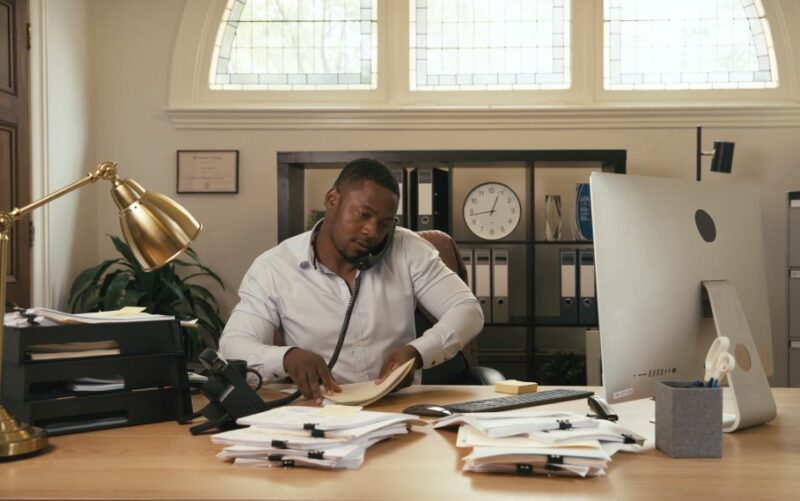Starting a new business is challenging. From creating a thorough business plan to understanding funding intricacies, there are many obstacles to overcome.
However, there’s an alternative: buying an established business. This option, while having its challenges, offers numerous benefits for proactive entrepreneurs.
In this context, we’ll discuss the pros and cons of purchasing an existing providing you with valuable information to make a confident decision.
Pros

Let’s check the pros of buying an existing business.
1. A Proven Concept
Every new venture is a gamble on the future. The uncertainty can be daunting. However, with an existing business, you’re not betting on an untested idea. You’re investing in a concept that has already faced the market’s scrutiny.
It has demonstrated its viability through tangible metrics like revenue and profitability. This prior success can serve as a foundation upon which you can build further.
2. Easier Financing
For startups, securing initial funding is often an uphill battle. Lenders are wary of the risks associated with new ventures. In contrast, an established business comes with a financial history. This track record can be a persuasive factor for lenders.
Moreover, the option of seller financing, where the current owner assists in the purchase, can further ease the financial burden.

3. Time and Money Savings
The initial phases of a business involve a lot of experimentation. Which marketing strategy works best? What’s the most efficient customer acquisition method?
An existing business has already gone through these teething problems. By purchasing one, you can leverage the insights gained from these experiments and focus on amplifying successful strategies.
4. Established Customer Base
One of the most resource-intensive tasks for any new business is building a loyal customer base. It demands both time and money. An existing business offers a shortcut. It comes with a set of customers who are familiar with the product or service.
This existing relationship is a valuable asset, allowing you to concentrate on enhancing these relationships and exploring avenues for additional revenue.
5. Immediate Cash Flow
Starting from scratch often means a prolonged period without any significant income. This dry spell can be a significant strain, especially if you have other financial obligations.
An existing business, on the other hand, often comes with ongoing operations that generate cash flow. This immediate revenue can provide much-needed financial stability as you navigate the early days of ownership.
Cons

While the idea of purchasing an established business can be enticing, it’s not without its share of challenges. Here’s a deeper look into some of the potential pitfalls.
1. Hidden Issues
While many business owners are transparent, some might not be entirely open about the challenges their business faces. It’s not just about looking at the surface; potential buyers must dig deep into the financial and operational aspects of the business.
Without a thorough investigation, you might find yourself dealing with unforeseen issues that the previous owner conveniently omitted.
2. Outdated Equipment
A business up for sale might have been neglected in terms of maintenance and upgrades. This is especially true for businesses where machinery and equipment play a pivotal role. Before making a purchase, a detailed inspection is paramount to ensure that you’re not investing in a venture that requires immediate and costly upgrades.

3. Company Culture Challenges
A business isn’t just about assets and balance sheets; it’s also about its people and the prevailing culture. An incompatible or toxic company culture can pose significant challenges. It’s vital to gauge the workplace environment, understand employee morale, and determine if a cultural overhaul is necessary.
4. Past Due Taxes
Financial diligence isn’t just about profits and losses. Overlooked liabilities, especially in the form of pending taxes, can come back to haunt new owners. It’s imperative to ensure that all financial obligations, particularly taxes, have been settled to avoid unexpected and potentially hefty bills down the line.
Specific Tips

Follow these tips if you are interested in buying an existing business.
1. Review Financial Statements
Begin with a thorough examination of the business’s financial statements. This includes profit and loss statements, balance sheets, and cash flow statements.
Look for consistent revenue streams, profitability trends, and any outstanding debts or liabilities. It’s also wise to request tax returns for the past few years to ensure they align with the reported financials.
2. Interview Employees
Employees can offer invaluable insights into the day-to-day operations of the business. Engage in candid conversations with staff members across different levels.
They can shed light on the company culture, operational challenges, and the overall health of the business.

3. Conduct Market Research
Understanding the market landscape is crucial. Analyze the business’s position in the market, its competitors, and potential growth opportunities.
This will give you a clearer picture of the future prospects and any potential threats.
4. Inspect Physical Assets
If the business has physical assets like machinery, inventory, or real estate, ensure they are in good condition. Check for any wear and tear, and determine if any immediate replacements or repairs are needed.
FAQ
How do I determine the fair value of an existing business?
Determining the fair value requires a combination of methods. This includes analyzing the business’s financial statements, comparing it with similar businesses that have recently sold, and possibly hiring a business appraiser for an unbiased valuation.
Are there any legal considerations when buying an existing business?
Yes, it’s crucial to ensure that the business has no legal disputes pending, all licenses are up-to-date, and intellectual property rights are clearly defined. It’s advisable to consult with a business attorney during the process.
How do I transition the existing employees after the purchase?
Communication is key. Meet with the employees, assure them of their job security, and be transparent about any changes. It’s also beneficial to retain existing management, at least initially, for a smoother transition.
What about the existing business’s debts and liabilities?
When buying a business, you can either buy its assets or its stock. Buying assets typically means you’re not assuming the business’s debts while buying stock means you’re buying the company as a whole, including its liabilities.
Always conduct thorough due diligence to understand all financial obligations.
How can I ensure the business’s continued success post-purchase?
While the business may have a proven track record, it’s essential to invest time in understanding its operations, customer base, and market trends. Continuous learning and adapting to the market’s needs will be crucial for sustained success.
Can I renegotiate vendor contracts once I take over?
Yes, as the new owner, you have the right to renegotiate contracts. However, it’s essential to approach this with caution to maintain good relationships with vendors and ensure continued supply and services.
Bottom Line
In wrapping up, opting to purchase an established business can indeed be a rewarding endeavor, especially for those who approach the decision with meticulous care and in-depth investigation. The allure of stepping into a pre-existing framework, replete with its advantages, is undeniable.
However, like any significant venture, it’s not without its challenges and potential setbacks. It’s crucial for aspiring business owners like you to strike a balance—recognizing the benefits while being vigilant of the possible pitfalls.
By meticulously evaluating the advantages and potential risks, and undertaking comprehensive due diligence, you position yourself to make a choice that resonates with your unique entrepreneurial aspirations and vision.
